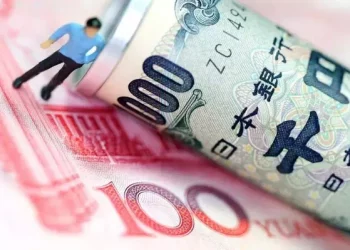The GBP currency is one of the most well-known and widely used currencies in the world. It is the official currency of the United Kingdom, and it is also commonly known as the pound sterling or simply the pound. In this article, we will explore the meaning and value of the GBP currency, and examine its history, features, and importance.
Historical Background of the GBP Currency
The history of the GBP currency dates back to the medieval times when silver pennies were the standard currency used in England. During the 16th century, Henry VIII introduced a new coin called the shilling, which was equal to twelve pennies. This new coin became the dominant currency in England until the United Kingdom adopted decimalization in 1971.
Today, the GBP currency is regulated by the Bank of England, which is responsible for setting monetary policy and regulating the supply of money in circulation. The bank uses various tools to control inflation and maintain economic stability, including adjusting interest rates and managing the money supply.
Value of the GBP Currency
The value of the GBP currency is determined by a variety of factors, including economic performance, political stability, and global market conditions. Like all currencies, the GBP is subject to fluctuations in value due to changes in supply and demand, as well as changes in exchange rates with other currencies.
One notable feature of the GBP currency is that it is often used as a reserve currency by other countries. This means that foreign governments and central banks hold large amounts of GBP as a way to hedge against economic volatility and protect their financial assets.
Factors Affecting the Value of the GBP Currency
Several factors can impact the value of the GBP currency, including:
- Economic Performance The performance of the UK economy has a significant impact on the value of the GBP. If the economy is performing well and growing at a healthy rate, demand for the GBP may increase, driving up its value. Conversely, if the economy is struggling or experiencing a recession, demand for the currency may decrease, causing its value to decline.
- Political Stability The political stability of the United Kingdom is also an important factor in determining the value of the GBP. Political instability or uncertainty can lead to a lack of confidence in the economy and government, which can negatively impact the currency’s value.
- Global Market Conditions Global market conditions can also affect the value of the GBP currency. Changes in commodity prices, interest rates, and other economic indicators can impact the global demand for the GBP, and therefore its value relative to other currencies.
Importance of the GBP Currency
The importance of the GBP currency extends beyond its use within the United Kingdom. As mentioned earlier, the GBP is widely used as a reserve currency by foreign governments and central banks. In addition, it is commonly traded on international currency markets, making it an important player in the global financial system.
The GBP is also used as a benchmark currency for many commodities, including crude oil and gold. This means that changes in the value of the GBP can have a significant impact on the prices of these commodities, which can, in turn, affect global trade and economic activity.
In conclusion, the GBP currency is an important and widely used currency in the global financial system. Its value is determined by a variety of factors, including economic performance, political stability, and global market conditions. Understanding these factors is essential for anyone looking to invest in or trade GBP currency. The history, features, and importance of the GBP currency make it a fascinating subject for further exploration and study.
Related Topics:
























